ARTICLE AD BOX
Rushdi Abualouf
Gaza correspondent
Reporting fromCairo

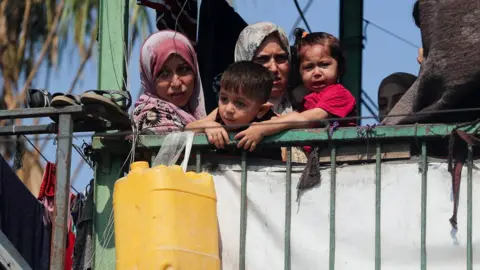 Reuters
Reuters
Gaza has been devastated by 21 months of war between Israel and Hamas
Negotiations between Israel and Hamas in Qatar on a new Gaza ceasefire and hostage release deal are on the brink of collapse, according to Palestinian officials familiar with the details of the discussions.
One senior official told the BBC that Israel had "bought time" during Prime Minister Benjamin Netanyahu's visit to Washington this week and deliberately stalled the process by sending a delegation to Doha with no real authority to make decisions on key points of contention.
They include the withdrawal of Israeli troops and humanitarian aid distribution.
Before he left the US on Thursday, Netanyahu had maintained a positive tone, saying he hoped to complete an agreement "in a few days".
He said the proposed deal would see Hamas release half of the 20 living hostages it is still holding and just over half of the 30 dead hostages during a truce lasting 60 days.
Since last Sunday, Israeli and Hamas negotiators have attended eight rounds of indirect "proximity" talks in separate buildings in Doha.
They have been facilitated by Qatar's Prime Minister Sheikh Mohammed bin Abdul Rahman Al Thani and senior Egyptian intelligence officials, and attended by US envoy Brett McGurk.
The mediators have relayed dozens of verbal and written messages between the Hamas and Israeli delegation, which has included military, security and political officials.
But on Friday night, Palestinian officials familiar with the negotiations told the BBC they were on the verge of collapse, with the two sides deeply divided on several contentious issues.
They said the most recent discussions had focused on two of those issues: the mechanism for delivering humanitarian aid in Gaza and the extent of the Israeli military withdrawal.
Hamas has insisted that humanitarian assistance must enter Gaza and be distributed via United Nations agencies and international relief organisations.
Israel, on the other hand, is pushing for aid distribution via the controversial Israeli- and US-backed mechanism run by the Gaza Humanitarian Foundation (GHF).
According to mediators involved in the process, there has been some limited progress on bridging the divide over this issue. However, no formal agreement has been reached.
The second major sticking point is over the extent of the Israeli withdrawal.
During the fifth round of talks, Israeli negotiators reportedly handed mediators a written message stating that Israel would maintain a limited "buffer zone" inside Gaza that was between 1km and 1.5km (0.6-0.9 miles) deep.
Hamas, according to a Palestinian official who attended at least two of the rounds of talks, viewed this proposal as a possible starting point for compromise.
However, when Hamas requested and received a map outlining Israel's proposed withdrawal zones, the document contradicted the earlier message, showing far deeper military positions. The map was said to indicate buffer zones that were up to 3km deep in certain areas and confirmed a continued Israeli presence in vast swathes of territory.
They covered all of the southern city of Rafah, 85% of the village of Khuzaa east of Khan Younis, substantial parts of the northern towns of Beit Lahia and Beit Hanoun, and eastern neighbourhoods of Gaza City, such as Tuffah, Shejaiya and Zeitoun.

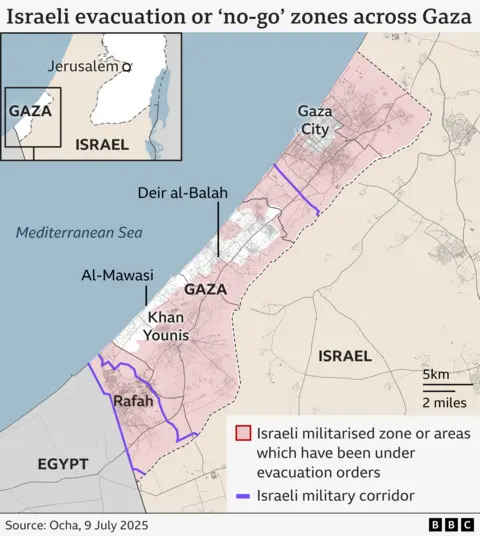
Hamas officials saw the map as a bad-faith manoeuvre by Israel, further eroding trust between the sides.
Palestinian officials accused the Israeli delegation of deliberately stalling to create a positive diplomatic backdrop for the Israeli prime minister's recent visit to Washington.
"They were never serious about these talks," one senior Palestinian negotiator told the BBC. "They used these rounds to buy time and project a false image of progress."
The official also claimed that Israel was pursuing a long-term strategy of forced displacement under the guise of humanitarian planning.
He alleged that Israeli Defence Minister Israel Katz's plan to move Palestinians to a "humanitarian city" in Rafah was part of a broader effort to permanently relocate them.
"The goal of concentrating civilians near the Egyptian border is to pave the way for their expulsion either across the Rafah crossing into Egypt or out through the sea," the official said.
On Monday, Katz briefed Israeli reporters that he had instructed the military to prepare a plan for a new camp in Rafah that would initially house about 600,000 Palestinians - and eventually the whole 2.1 million population.
According to the plan, the Palestinians would be security screened by Israeli forces before being allowed in and not permitted to leave.
Critics, both domestically and internationally, have condemned the proposal, with human rights groups, academics and lawyers calling it a blueprint for a "concentration camp".
With the talks at a critical juncture, the Palestinian side is calling on the US to intervene more forcefully and pressure Israel to make meaningful concessions.
Without such intervention, mediators warn, the Doha negotiations could collapse entirely.
That is a scenario that would further complicate regional efforts to reach a durable ceasefire and avert a broader humanitarian catastrophe in Gaza.
Diplomats in Doha say there is still a narrow window for compromise, but that the situation remains fragile.
"This process is hanging by a thread," one regional official said. "Unless something changes dramatically and quickly, we may be heading towards a breakdown."
The Israeli military launched a campaign in Gaza in response to the Hamas-led attack on southern Israel on 7 October 2023, in which about 1,200 people were killed and 251 others were taken hostage.
At least 57,823 people have been killed in Gaza since then, according to the territory's Hamas-run health ministry.

 3 hours ago
6
3 hours ago
6
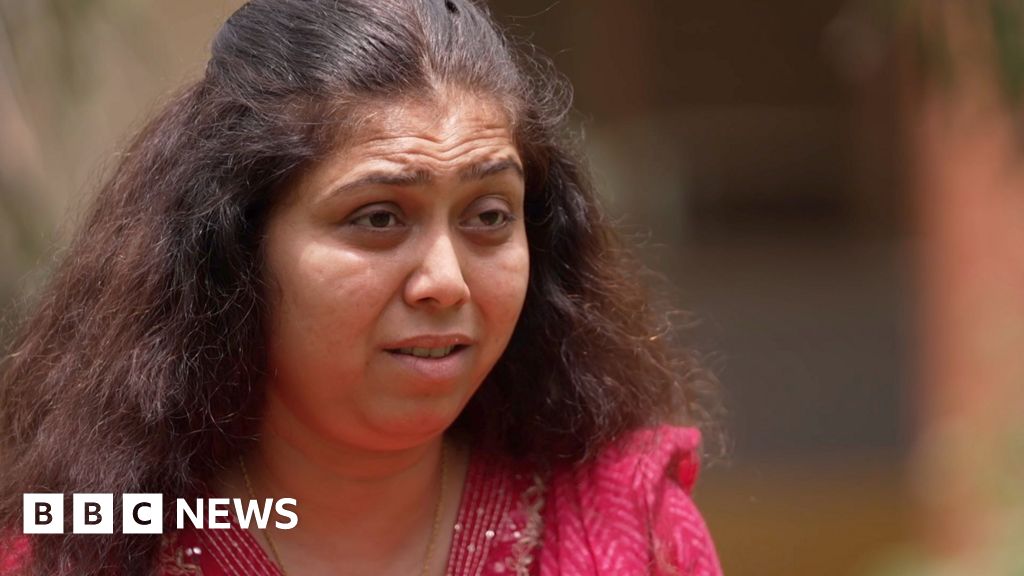
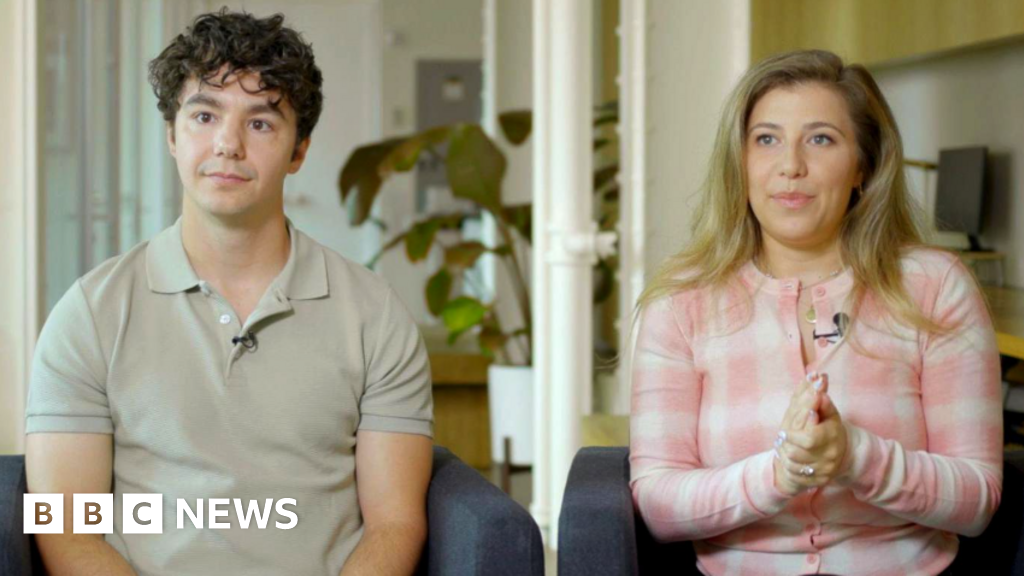
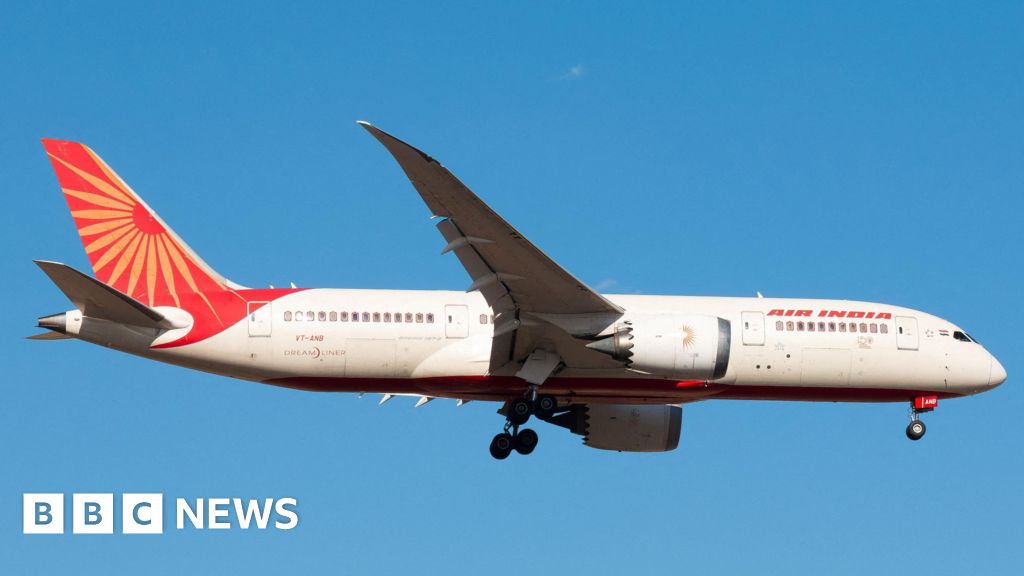





 English (US) ·
English (US) ·